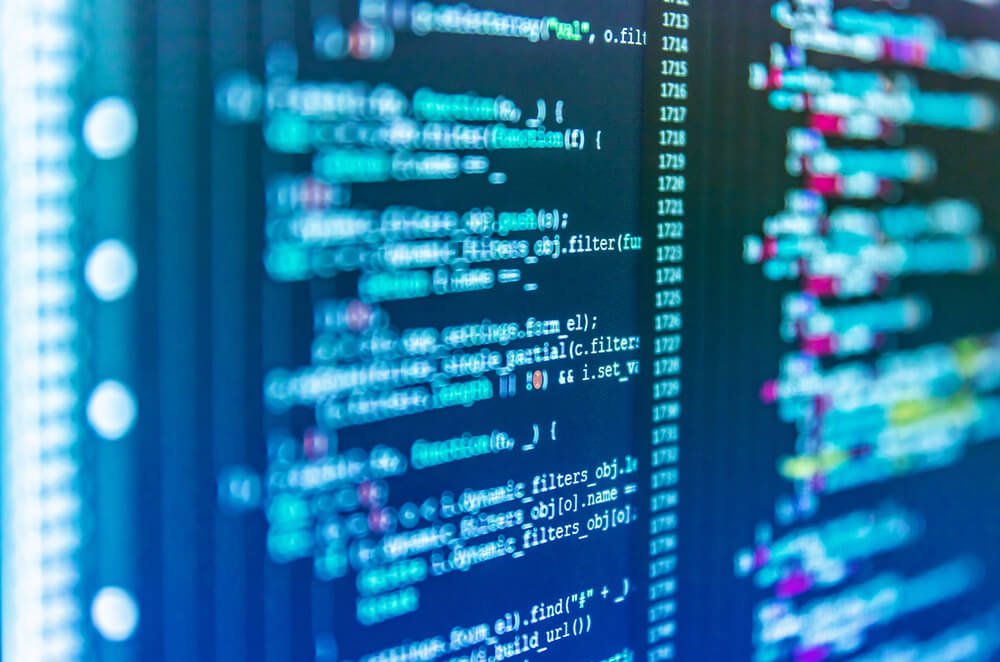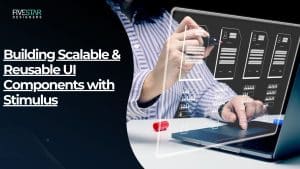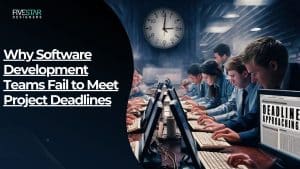If you’re interested in becoming a blockchain developer or looking for a career in blockchain development, you may be wondering what it takes to get started. Blockchain technology is rapidly evolving, and developers must keep up with the latest trends and technologies to stay competitive. This beginner-friendly guide will look at the blockchain development roadmap and what you need to know to become a successful blockchain developer.
What is blockchain development?
Blockchain development is creating decentralized applications (dApps) using blockchain technology. Blockchain refers to a type of distributed ledger technology that allows for secure storage and transfer of data without requiring a central authority. This revolutionary technology has the potential to drastically change the way that businesses function, which is why there is presently a significant demand for qualified blockchain developers.
Why to become a blockchain developer?
Blockchain is an emerging technology rapidly adopted by many industries worldwide. Blockchain technology has shown promise in revolutionizing finance, healthcare, supply chain management, and many more industries. MarketsandMarkets’ report forecasts that the market size for blockchain will experience significant growth, rising from USD 3.0 billion in 2020 to USD 39.7 billion by 2025, with a compound annual growth rate (CAGR) of 67.3%. This remarkable expansion underscores the potential of blockchain technology, and pursuing a career as a blockchain developer can lead to rewarding job opportunities.
As the use of blockchain technology becomes increasingly prevalent, there is a mounting need for competent experts capable of designing, maintaining, and advancing blockchain applications. The increasing demand for blockchain developers is reflected in the rising salaries and attractive benefits offered to professionals in this field. Additionally, blockchain technology is still in its infancy, providing ample room for innovation and creativity. Given its capacity to revolutionize entire sectors, pursuing a career as a blockchain developer is an outstanding option for technology enthusiasts seeking to make a genuine difference in the world.
Read more about: Limitless Possibilities with Quantum App Development
Blockchain Development Roadmap
Blockchain technology is a revolutionary innovation transforming how we store and exchange data. It is used across various industries, including finance, healthcare, logistics, etc. With the growing demand for blockchain-based applications, there is a need for skilled blockchain developers who can create secure and efficient blockchain solutions. If you’re keen on becoming a blockchain developer, this beginner-friendly guide provides an overview of the blockchain development roadmap.
Step 1: Learn the Fundamentals
Before diving into blockchain development, it’s important to understand the fundamentals of blockchain technology. You should learn about the different types of blockchains, consensus algorithms, cryptographic techniques, and smart contracts. For instance, Bitcoin uses Proof-of-Work (PoW) consensus algorithm, while Ethereum uses Proof-of-Stake (PoS) consensus algorithm. You can start by reading online tutorials and courses, attending webinars, and joining blockchain communities.
Step 2: Choose a Blockchain Platform
Once you have learned the fundamentals of blockchain technology, the next step is to choose a blockchain platform. Several blockchain platforms are available in the market, each with its own features and capabilities. You need to choose a blockchain platform that fits your project requirements. For instance, if you want to build decentralized applications (dApps), then Ethereum is a popular choice.
According to a report by Statista, the global blockchain market is expected to reach $20 billion in 2025, up from $1.2 billion in 2018. This indicates the increasing adoption of blockchain technology across various industries.
Step 3: Learn a Programming Language
To develop blockchain applications, you must learn a programming language compatible with your chosen blockchain platform. Solidity is a popular programming language for the Ethereum blockchain, while Java and Kotlin are used for Hyperledger Fabric. Depending on your project requirements, you can also learn Python, Go, or Rust.
As per a LinkedIn report, blockchain development is among the leading emerging occupations in the technology sector. The report also reveals that the demand for blockchain developers has increased by 33 times since 2014.
Step 4: Build a Blockchain Application
Once you have learned the fundamentals of blockchain technology, choosing a blockchain platform, and learned a programming language, it’s time to build a blockchain application. You can start by building a simple application like a smart contract or a decentralized application (dApp). You can also contribute to open-source blockchain projects to gain experience and build your portfolio.
According to a report by Gartner, blockchain-based projects have an 85% success rate compared to traditional IT projects, with a success rate of 30%.
Step 5: Deploy the Application
After building the blockchain application, you must deploy it on the blockchain network. Depending on your project requirements, you can deploy the application on a public or private blockchain network. To ensure that the application is secure, scalable, and performs well, it is necessary to test it before deploying it to the production environment.
Accenture’s report suggests that blockchain technology has the ability to save global investment banks $12 billion each year in infrastructure expenses.
Step 6: Maintain and Upgrade the Application
Maintaining and upgrading the blockchain application is an ongoing process. You need to monitor the application for bugs and security vulnerabilities and fix them promptly. You also need to upgrade the application to include new features and technologies. For example, you can upgrade the smart contract to include new functions or integrate it with other blockchain applications. According to a recent survey, 41% of developers face challenges maintaining blockchain applications due to the lack of documentation and tools.
Skill Required for Blockchain Developers
Blockchain technology has been gaining tremendous attention in recent years, and its use cases have expanded beyond just cryptocurrency. From supply chain management to digital identity, blockchain is a versatile technology. With its growing popularity, the demand for blockchain developers is also rising. Here we will discuss the skills required for blockchain developers.
Knowledge of Blockchain Fundamentals
To become a proficient blockchain developer, it’s crucial to have a strong understanding of the underlying principles of blockchain technology. This includes the concepts of decentralization, consensus algorithms, cryptography, and smart contracts.
Decentralization
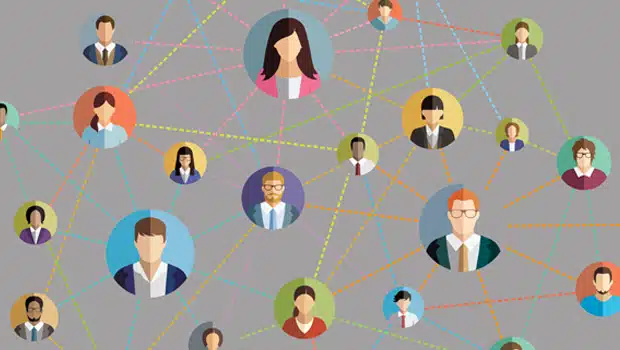
Blockchain technology is based on the idea of decentralization, meaning that no central authority controls the network. All transactions are recorded on a public ledger maintained by a network of nodes.
Consensus algorithms
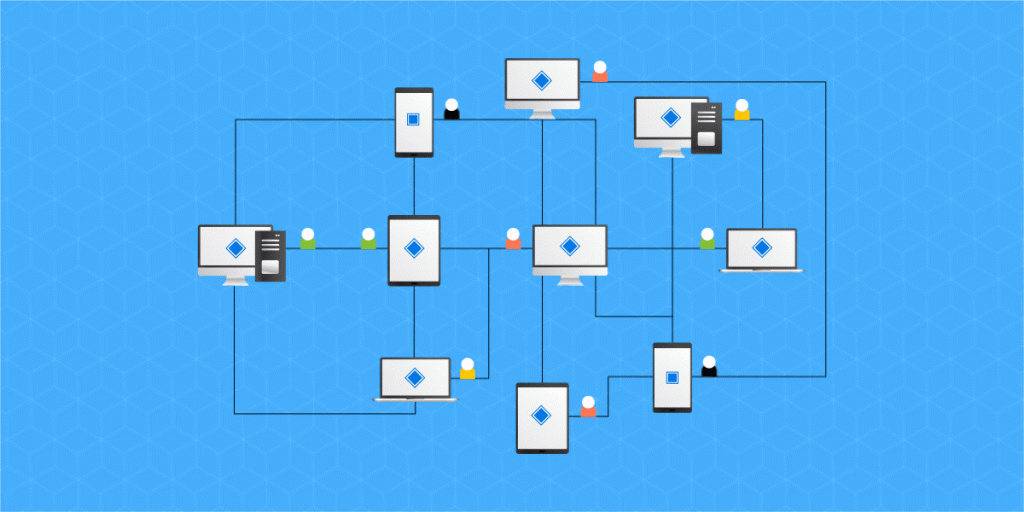
To ensure the integrity of the blockchain network, consensus algorithms are used. These algorithms enable nodes to reach a consensus on the network state and prevent malicious actors from tampering with the data.
Cryptography
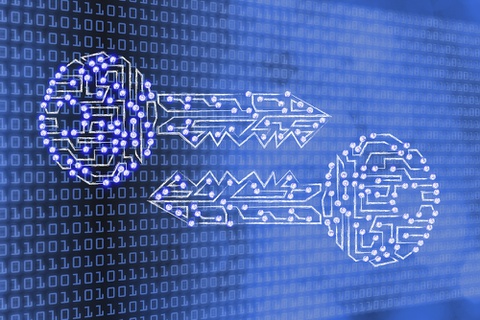
Blockchain technology relies heavily on cryptography to secure the network and protect user data. A blockchain developer should thoroughly understand cryptographic algorithms such as SHA-256, RSA, and elliptic curve cryptography.
Smart contracts
Smart contracts are self-executing contracts that automate verifying and enforcing contractual terms. A blockchain developer should thoroughly understand smart contracts and how they work.
Read more about: How Can Startups Reduce Mobile App Development Costs
Proficiency in Programming Languages
For a blockchain developer, it is vital to have expertise in programming languages such as Java, Python, C++, and Solidity.
Java and Python are commonly used for building blockchain-based applications, while C++ is used for developing the core blockchain infrastructure. Solidity is a smart contract programming language used to develop Ethereum platform applications.
Knowledge of Blockchain Platforms
Several blockchain platforms are available, each with unique features and functionalities. A blockchain developer should be familiar with different blockchain platforms such as Ethereum, Hyperledger, Corda, and EOS.
Understanding the nuances of each platform will help developers choose the right one for their project. For example, Ethereum is a popular platform for building decentralized applications, while Hyperledger is more focused on enterprise use cases.
Experience with Distributed Systems
Blockchain is a distributed system, and blockchain developers should have experience in developing and managing distributed systems. They should understand how nodes communicate with each other, the concept of peer-to-peer networks, and the challenges associated with network scalability.
Understanding of Smart Contracts
Smart contracts are self-executing contracts that automate verifying and enforcing contractual terms. Blockchain developers should thoroughly understand smart contracts and how they work. They should also be familiar with smart contract development tools and frameworks such as Truffle and Embark.
Knowledge of Cryptography
Blockchain technology relies heavily on cryptography to ensure the security and privacy of transactions. Blockchain developers should know cryptographic algorithms such as SHA-256, RSA, and elliptic curve cryptography. They should also understand the different types of digital signatures, such as ECDSA and EdDSA.
Familiarity with Web3.js
Web3.js is a JavaScript library that empowers developers to engage with the Ethereum blockchain. A blockchain developer should be familiar with Web3.js and understand how to use it to build decentralized applications.
Experience with DevOps
DevOps represents a collection of methodologies that unify software development (Dev) and IT operations (Ops). As a blockchain developer, it is essential to have previous familiarity with DevOps tools and methodologies like Git, Docker, and Kubernetes. This will enable them to deploy and manage blockchain-based applications scalable and efficiently.
Blockchain Tools & Platforms to Master
In this section, we’ll cover some of the most significant blockchain tools and platforms that one must master. These tools and platforms can assist you in constructing blockchain applications, executing smart contracts, and completing transactions on the blockchain network.
Ethereum
Ethereum is a decentralized blockchain platform that enables the development of decentralized applications (dApps) and smart contracts. It is the second-largest blockchain platform in terms of market capitalization after Bitcoin. Ethereum provides a Turing-complete programming language called Solidity, used to write smart contracts. Smart contracts refer to self-executing contracts stored on the blockchain that execute automatically when specific conditions are fulfilled. Ethereum also supports the development of decentralized autonomous organizations (DAOs) and decentralized finance (DeFi) applications.
Hyperledger Fabric
Hyperledger Fabric is an authorized blockchain platform that is specifically designed for business use. It provides a modular architecture that allows businesses to build and deploy custom blockchain applications. Hyperledger Fabric supports smart contracts written in popular programming languages like Java, Go, and JavaScript. It also provides high privacy and confidentiality by allowing multiple organizations to participate in the same blockchain network while maintaining their data privacy.
Corda
Corda is an open-source blockchain platform that is designed to cater to business use cases. It provides a secure and transparent way to transfer assets and data between parties. Corda is a permissioned blockchain platform allowing businesses to build custom applications for their specific use cases. Corda also supports the development of smart contracts written in popular programming languages like Java and Kotlin.
Stellar
Stellar is a decentralized blockchain platform that is designed for the transfer of digital assets and payments. It provides a fast and secure way to transfer assets between parties. Stellar supports the development of custom tokens and smart contracts. It also provides built-in decentralized exchange capabilities, allowing users to trade assets on the blockchain network.
Truffle Suite
The Truffle Suite is a development framework that provides blockchain developers with the ability to create, test, and deploy blockchain applications. It provides a suite of tools that make writing, deploying, and managing smart contracts easier. Truffle Suite supports the development of smart contracts written in popular programming languages like Solidity and Vyper. It also provides testing tools that allow developers to test their smart contracts and applications.
Remix
Remix is an open-source development environment that enables developers to code, test, and deploy smart contracts. It provides a web-based interface that makes writing and testing smart contracts easy. Remix supports the development of smart contracts written in Solidity. It also provides a suite of debugging tools that make it easier to debug smart contracts.
Ganache
Ganache is a local blockchain network allowing developers to test their applications in a simulated environment. It provides a suite of tools that make developing and testing blockchain applications easier. Ganache supports the development of smart contracts written in popular programming languages like Solidity and Vyper. It also provides a suite of debugging tools that make it easier to debug smart contracts.
EOSIO
EOSIO is a blockchain platform that enables developers to build decentralized applications (dApps) quickly and easily. It features a high-performance blockchain engine, smart contract development tools, and an extensive developer community. EOSIO offers a distinctive consensus mechanism called Delegated Proof of Stake (DPoS), which allows for fast transaction processing and high scalability. EOSIO provides a scalable infrastructure for decentralized applications (dApps), making it easier for developers to create and deploy applications on the platform.
Quorum
Quorum is an enterprise-focused blockchain platform built on Ethereum. It is designed to address the specific needs of businesses, including data privacy and confidentiality, and has been adopted by several major financial institutions. Quorum offers a unique permissioning system that enables organizations to control who can access their data and transactions on the blockchain. It also features a robust smart contract development framework and supports several consensus mechanisms, including the Raft consensus algorithm.
Substrate
Substrate is a blockchain development framework created by Parity Technologies. It enables developers to build custom blockchains and dApps quickly and easily, supporting multiple consensus mechanisms and interoperability with other blockchain networks. Substrate provides a modular architecture that allows developers to customize various components of the blockchain, such as consensus mechanisms, storage systems, and networking protocols. It also includes a runtime environment for executing smart contracts and supports multiple programming languages, including Rust and C++.
Polkadot
Polkadot is a blockchain platform that intends to facilitate interoperability among various blockchain networks, representing a step forward in blockchain technology. It features a unique sharding architecture that enables high scalability and throughput and a robust governance system. Polkadot’s architecture allows multiple interconnected parachains to support different consensus mechanisms and intelligent contract execution environments. Additionally, Polkadot includes a governance system that enables stakeholders to participate in decision-making processes regarding the platform’s development and upgrades.
IPFS
InterPlanetary File System (IPFS) is a decentralized storage and content-addressable network often used with blockchain technology. It enables users to store and access files in a decentralized manner without relying on centralized servers. IPFS uses a unique content-addressing system that allows users to access files based on their content rather than their location. This makes it a highly efficient and secure way to store and share files online. IPFS is also highly scalable, using a distributed network of nodes to store and retrieve files.
Why Become a Blockchain Developer?
Blockchain technology has revolutionized various industries, ranging from finance to healthcare, and its potential impact on our daily lives is becoming increasingly apparent. As a result, blockchain developers have emerged as highly sought-after professionals, with demand expected to rise exponentially in the coming years. Here we will explore why becoming a blockchain developer is an excellent career choice.
High demand for blockchain developers
The demand for skilled blockchain developers is on the rise as more companies and organizations are eager to take advantage of the numerous benefits that blockchain technology can offer. According to a report from LinkedIn, blockchain development was ranked as the topmost sought-after job in both 2018 and 2019, with the demand for these specialists projected to continue growing in the coming years.
Attractive salaries
The high demand for blockchain developers has resulted in attractive salaries for these professionals. Glassdoor reports that the median annual salary for a blockchain developer in the United States is approximately $120,000, with some earning up to $175,000 per year. Additionally, blockchain developers are often eligible for other perks such as stock options, flexible working hours, and the possibility to work remotely.
Opportunity for innovation
Blockchain technology is still at a nascent stage, leaving vast possibilities for innovation and creativity to explore. As a blockchain developer, you can work on cutting-edge projects and develop new solutions that could revolutionize entire industries.
Wide range of industries to work in
Blockchain technology can potentially disrupt and transform various industries, including finance, healthcare, supply chain management, etc. As a blockchain developer, you can work in various industries and apply your skills to solve different problems.
Potential for remote work
Blockchain technology is inherently digital, meaning many blockchain developers can work remotely. This is particularly attractive for those who prefer a flexible work environment and value work-life balance.
Blockchain is the future.
Blockchain technology can potentially revolutionize how we conduct business, exchange value, and even govern ourselves. Being a blockchain developer roadmap means being a crucial part of the ongoing technological revolution, where you get to play an essential role in shaping the future of our society.
On a Final Note
In conclusion, blockchain technology is one of the most promising and rapidly growing fields in the world of technology. With this beginner-friendly guide to blockchain development, you now have a roadmap to get started on your journey toward becoming a blockchain developer. Whether you’re interested in finance, healthcare, supply chain management, or any other industry, blockchain technology can revolutionize how we conduct business and interact with each other.
So take the first step on this exciting path, and who knows, you may just be the one to create the next game-changing blockchain application!
